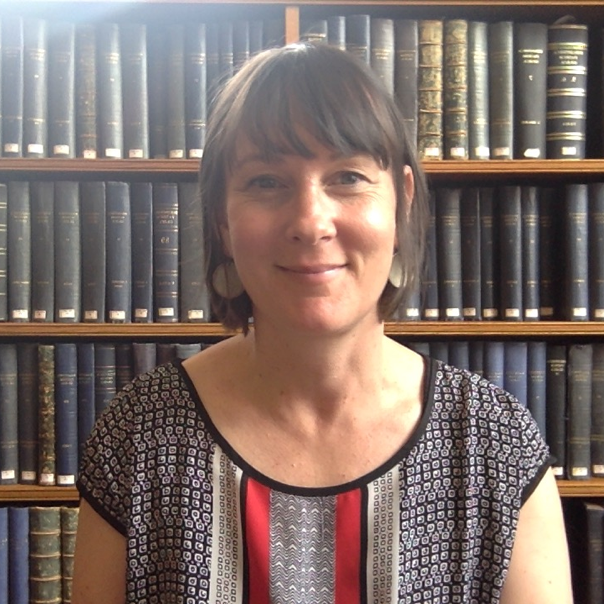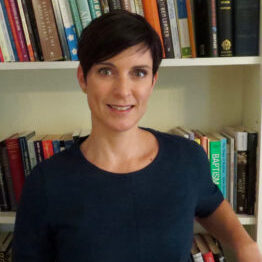Episode Transcript
[00:00:04] Speaker A: You're listening to by the well, a lectionary based podcast for preachers recorded on the land of the Wurundjeri people.
[00:00:18] Speaker B: Hi, everyone, I'm Rachel Kronberger.
[00:00:21] Speaker A: And I'm Sally Douglas. Welcome to by the World this week for our readings for Sunday, August 31, Pentecost 12. The readings are Jeremiah, chapter chapter 2, verses 4 to 13, Psalm 81, 1 10, 16, Hebrews 13, 1 8, and then 15 and 16 and Luke 14, 1 7, 4. And a lot of jumping around in the lectionary today, right?
[00:00:47] Speaker B: It's a lot of jumping around. Yeah. So you may want to read whole.
[00:00:51] Speaker A: Passages, but this is how the lectionary sets it out. And we're going to be focusing today on Jeremiah and Hebrews and Luke.
So let's talk about Jeremiah now. We spoke about this recently, Monica and I. It's one of the longest books in the Bible and it's. You kind of get to hear a little bit of the inner life of trauma of this person. Whether it's all attributed to the same author, we don't know. But it's a time of turmoil, political turmoil, exile of God's people and agony about where is God and what the people are doing and not doing, how they're not following.
And we're going to be there for quite a while, Rachel, aren't we, in the lectionary?
[00:01:34] Speaker B: We are. We've got about nine weeks. Eight of them are Jeremiah and one is Lamentations. But they all address the same period in the history of ancient Israel of suffering and trauma and trying to understand what's going on and where God is in the midst of the struggle.
[00:01:55] Speaker A: Yeah. So really, really key questions for humanity. So maybe that's why it's such an important book. And even though it's difficult subject matter, I think these kind of questions are really integral for most people, even people who reject the church, that part of the reason sometimes that people do reject faith or any religion is because, well, where is God in the suffering? So to actually have an opportunity to stay with those questions and wrestle with them can be a gift, even though it might be a prickly gift, so to speak.
[00:02:25] Speaker B: Yes, absolutely. Yeah.
[00:02:29] Speaker A: So in this passage, so we're getting a taste, we first we heard about the call and now we're hearing a little bit more of what's going on in chapter two.
And it's really setting up a court case kind of imagery where God's breathing, God's case to the people about what's going on here.
[00:02:49] Speaker B: What have you done yeah, it's really interesting. God is accusing the people in effect. And it's quite interesting. It makes me think of that passage in Matthew's gospel where Jesus says, you know, take people to court as a very last resort, you know, when all other communications failed and all mediations broken down. And so there's this sense of divine desperation really in the relationship that it's come to this. But there's formal legal language accusing the people of breaching the covenant, really.
[00:03:23] Speaker A: And it's very tender language. What wrong did your ancestors find in me? God asks. I mean, this kind of disrupts our notion again, I think so often our culture, but also in the church, cause we're not immune from our culture, really has an image of God as Zeus. And Renaissance art kind of imagery of God kind of confirms that. The Marvel movies imagery of gods. But here is this tender image of God saying, what did I do wrong?
[00:03:50] Speaker B: Like what is the case? It's that feeling of, you know, sometimes the most faithful thing you can do in a relationship is to raise the hard questions and to ask after the history of, you know, patterns of disruption and rupture in a relationship.
So yeah, God says, well, what about, you know, when I delivered you from Egypt and you know, you never asked where, where is that God who rescued us? Yes. Then when you were faced with the abundance of the promised land, you didn't ask about where, where is the God who brought us here? And when you studied the scriptures, you didn't say where is the God who gifted us the law? And when, you know, there's just the layers and layers and layers of betrayal.
[00:04:43] Speaker A: Yeah. And it's not just the people, it's the leaders as well. The priest did not say, where is the Lord? Those who handle the law did not know me. So verse 8. So this sense of this all out rejection, even though God has actively been with the people, bringing liberation and longing for this relationship, they've gone off after worthless things, after idols, things that are actually not life giving.
[00:05:09] Speaker B: And the things that they have pursued have shaped their character. And I think that's a really significant thread through here. The things that they have, have valued have been what has defined who they are. And if only they had valued the loving presence of God among them, then that, that's what would have shaped them. And that's, that's, that's part of the pain, isn't it?
[00:05:36] Speaker A: It is. So say some more about how that shaped their character because that's a really important thread.
[00:05:42] Speaker B: Well, it's in this thread of the Seeking after every possible alternative to God in pursuit of comfort, in pursuit of identity, in pursuit of abundance.
They've just continued to turn to the wrong things. And I have to say that.
[00:06:10] Speaker A: In.
[00:06:10] Speaker B: The prophets, often the lectionary gives us a passage that has a vivid poetic image or a metaphor to work with. And this one builds up to. This passage, builds up to the metaphor of the cisterns and yeah, life giving water. And I read this, a fabulous thing about the cisterns, which were the new technology of the Iron Age which allowed people to live in the hill country because they could store water, collected things. They could collect and store water and they didn't need to be beside in the valley besides. Yeah, yeah, next to a freshwater spring. But the cisterns aren't the water supply, they're just the place where the water's stored. They're a mechanism, you know, a structure.
[00:07:00] Speaker A: And it's not fresh water and it's a cracked system. So it's this layer upon layer, isn't it? Going looking for things in the wrong place, looking for life where it's not life giving.
[00:07:10] Speaker B: Yeah, that's right. And. But I did, I was, I was quite taken with that idea of technology not being as fulfilling as we imagine it to be.
[00:07:19] Speaker A: I think that it's a really wonderful way of taking.
Exploring this theme. And I think this is like an invitation in something like Jeremiah is, is not to do the thing that has been done in the past at times of going, well, look at those unfaithful Jewish people and look at how faithful Christians are. Because that's clearly not, I don't think the invitation of the text.
[00:07:40] Speaker B: Absolutely not.
[00:07:41] Speaker A: You know, the Johannine Jesus picks up on this imagery of being the living water. Like it's such a powerful image in Christian and Jewish understandings. But I think it then invites a question of where are we looking for our sustenance? Like when we are feeling vulnerable and not valued. Do we go online to see if we've got any likes or posts, do a little boasty postie or a humble boast, you know, using technology in that way. Or do we go to the living God with our hunger and say, I'm actually starving for you, I am so thirsty for your presence and not trying to. Or do we go online and buy stuff or you know, like where are we going for the living water in our most vulnerable moments when it's tempting to hide from that vulnerability and try and satisfy that hunger in a, in a junk food kind of way, in a way that's not actually life giving.
[00:08:28] Speaker B: And just like the people in this text, you know, we. We look in those places for abundance and we look in those other places for guidance and we look in those other places for identity and direction. You know, that it's really all the same human longings, which sure is. We seek after. Yeah.
[00:08:48] Speaker A: And I actually was struck when preparing for our conversation about how we do this as a church as well. So we think that the next program will bring life or the next merging or the net, whatever it is. And I'm not saying that those things might not be helpful, but are we actually turning to the living God with that fear about our vitality? Are we turning to the living God without concerns as a congregation or a presbytery or a synod? Or are we trying to fix it ourselves or, you know, borrow someone else's technology to fix it ourselves?
[00:09:22] Speaker B: And, you know, it's a hard conversation that Jeremiah proposes. You know, last week we heard the call of Jeremiah and the planting and the plucking up, you know, the building and the tearing down. It's not going to be straightforward here. No, but if we shy away from the hard conversation with God, then there's no, you know, we end up with.
[00:09:43] Speaker A: A crap system and thirsty all the time. Yeah, absolutely.
Okay, so shall we have a look at Hebrews together? I know. So Hebrews. I understand people can have ambiguous feelings or thoughts about Hebrews. And it's fair to say in the early church that was the case as well. So there were debates about whether it would make it into the canon. It was, you know, put in a kind of separate category for a while. It's those in the Antilina section. So those that always seen as sort of out of the text. And there were questions about James and Revelation as well, other texts.
So it's always had a bit of an. Or from an early period at least had an ambiguous place in the church, but it makes it into the canon. We don't know who wrote it, we don't know when it was written.
Some argue that it's clearly written before the temple's destroyed. Others argue, and I'm in the latter category, that it would is written after the destruction of the Temple. So whether it's in the 60s or the 90s or even later, that's an ongoing debate.
And it's quite sophisticated text informed by.
Informed by absolutely Jewish understandings, but also kind of philosophical constructs as we explore Lord last week. So these notions of the real and the present and what is manifest in Jesus. So it needs to Be held really carefully. I think that's part of the trickiness of it. It's a text you can, you know, grab a verse out of and then quote at people or yourself in unhelpful ways. It's working on a much more complex level than that. So let's go into it gently.
So chapter 13. What I love about this is it gets down to the practical. It's done all this big theology and thinking about who Jesus is and what salvation means, and now it's down to 10 tags. How do we actually relate to one another? And what's so fascinating, right, is it so much like Paul and actually to the source, like Jesus, in what Jesus calls, you know, to. To live in communities that are different in a distinctive way, Let mutual love continue.
So, you know, loving of brothers is in the Greek. So this sort of sense of you're in these new families, which is disruptive of patriarchal constructs of family, where, you know, you care for your own family and you have a position in that family and you're under the Father where within these Jesus communities, this radical idea of actually of one Father, which means everyone else is equal, like, you're all children under the Holy One. So this disruption of patriarchal expectations and now your brothers and sisters with people who were from a different cultural background and a different class. Some people are even slaves. And you're calling them a brother or sister. This is really radical stuff.
[00:12:36] Speaker B: We had a. A Greek visitor at our church service last week who wanted to talk about the philios, the brotherly love.
And he had this joke about it being philo, like Greek pastry.
[00:12:53] Speaker A: The layers.
[00:12:54] Speaker B: The layers of. The layers of. Of brotherly love.
[00:12:57] Speaker A: It was very.
[00:12:58] Speaker B: Was lovely. That is beautiful. I love that. That's a lovely way to think about.
[00:13:02] Speaker A: It, if you can eat weight.
So it's got this amazing.
And I think we can just read that glibly, like, if we've been around church circles, I love each other, but this is wild. Like, this is unexpected. It's disruption of expectations, a disruption of status.
[00:13:20] Speaker B: Yes. And the way the translation I have says that it must continue.
So it's this. This impulse. It's so. It's like a commandment, you know, there's no. There's no option. This is not an option at all. It's absolutely baseline kind of Christian expression. Yeah, yeah.
[00:13:42] Speaker A: And I love. So a little bit later, as part of an outworking of that is the welcoming of strangers, but then also visiting those in prison. So I just want to jump over the strangers and Come back to them in a second. So the prison is probably a reference to fellow Jesus followers who have been in prison. It might not be exclusive to that, but it's possibly part of it.
People are starting to be arrested in some. We don't know how wide scale persecution was, but there was some persecution because we know key leaders are killed, arrested and killed. So this is getting really costly, like. So people weren't given food in prison. You had to rely on friends or family to take you food to take you this necessities you needed. And this is this call, remember them, not just pray for them and forget, you know, oh, I remembered them today in my prayers, like turn up, love them in this solidarity. Which means you might be next arrested. Like this is really dangerous, costly love.
[00:14:32] Speaker B: Yes, yep.
[00:14:34] Speaker A: So it's hard for us perhaps in our context in Australia to sort of really get the granted. There's plenty of places in the world where that would still be the case. But I think the call we need to really wrestle with.
Yeah, yes.
[00:14:46] Speaker B: And I think. Well, I think there's a bit of an urban myth about the quality of what people are fed in prison in Australia as well. But yeah, might be a slightly different conversation. But the faithfulness of visiting people in prison is unchanged regardless of cultural setting or time.
[00:15:07] Speaker A: Yeah, exactly. And there's some beautiful Christian ministries around the place that do that work of hospitality and friendship with those in prison and those coming out of prison.
I just want to touch on the angels. Cause I just love this so much about entertaining strangers. For some have entertained angels. Now it's very, very likely that there's a reference here to Abraham and Sarah welcoming the strangers in Genesis 18. There could be some other references, you know, under girding that as well. But I also find it really interesting that in Matthew's Gospel it's a different emphasis, but there's some echoes where in that parable Jesus tells in Matthew 25 about feeding the hungry.
[00:15:50] Speaker B: Yes.
[00:15:51] Speaker A: And clothing the naked. And you do that for me like so that you meet Christ in the people who are the most vulnerable. To me, it has something of the same text. It's not the same, but there's a texture about it about being prepared to offer hospitality but at the same time be open to the divine in that encounter. And I feel like that's our mentality, you know, instead of thinking we're up here, we're so good and noble offering hospitality to you poor people down there. It's a shift in that dynamic to offer the hospitality because that's where the divine is like, oh, but it's interesting.
[00:16:27] Speaker B: Too, because we have. In the. In the Genesis stories, we have Abraham and Sarah and, you know, Sarah cooked her entire flour supply to bread for the angels, you know, that, like, she gave them everything she had.
But when we get to Lot, you know, the towns of Sodom and Gomorrah completely fail to offer hospitality to the angels. And so. And that. And that leads to the destruction of the entire cities.
So, yeah, you know, and likewise, it's a point of judgment in Matthew 25. You know, this is the sheep and the goats. This is serious stuff. This is not.
This is not incidental stuff. This is. This is core expressions of faithfulness to God. Yeah, yeah.
[00:17:16] Speaker A: And something about God's character. God is the one who provides us with the bread and the living water. And so to be godlike is to do the same. And so it's about. I kind of think of it almost in terms of it's tuning into the vibration of the divine and living out of that.
So it's not an optional extra thing like we do the serious discipleship and then we offer the hospitality, but that somehow that is part of embodying the life of the kingdom. And in doing so, we will be encountered by the divine as much as we share the divine's grace. That's a pretty powerful invitation.
This passage, to be fair, also has some tricky stuff around marriage. And so if we're. If you're reading it in worship, that that might need someone packing.
One thing I would say is, I. This is a hunch, but I just have this feeling that in the earliest church, with Paul's writing and others, and they're talking about, you know, love being the fulfilling of the law, and there's no law except love. I can just imagine that some people took that as like, all right, there's no law.
So I can have all kinds of relationships because love is the fulfilling of the law. You know, there's a sense in which there's. But actually there are still some boundaries. And. And this deeply Jewish understanding of the holiness of marriage is underscored again, about. There are still some. There's. We're called to an orderly community, not just this free for all. Everything's done in love is fine.
[00:18:45] Speaker B: That's just my personality, my. I. I go in a different direction.
[00:18:49] Speaker A: Tell.
[00:18:50] Speaker B: Where do you go?
Because I think about the households that hosted the earliest church communities.
[00:18:56] Speaker A: Yeah, yeah.
[00:18:56] Speaker B: And. And the stability. So on the one hand, the vulnerability that is set up with the kind of intimate friendships that occur in Christian communities.
And so what a delicate balance that is and how critical the, the primary relationship in that household is to the well being of the whole community and. Yeah.
[00:19:24] Speaker A: I'm sorry.
[00:19:25] Speaker B: Yeah, well, I just think if it becomes like a unit of mission, you know, it's an expression like it's one.
And clearly Paul and others were celibate and had other.
Maybe that they made, perhaps they claimed to be other commitments that they make, you know, for the, the mission of the community, but for those who were hosting congregations in their homes, that that was such a critical relationship to keep for everyone to support, you know, like that.
[00:20:00] Speaker A: Yeah, that. Actually, I think it can be both those things actually, because the other thing that would have been really radical is these communities where women and men were together sharing meals in this world like this. So the disruption of not just the hierarchy, but the kind of horizontal as well, so that, you know, slaves and free people sitting at the same table, but also women and men and women leaders of churches as well, like. So amidst all that disruption, underscoring that continuity in the sacredness. Yeah. And the other thing just beautiful about this Hebrews passage is the way it talks about Jesus Christ is the same yesterday, today and forever. That's a, in my profound claim, a.
[00:20:41] Speaker B: Shout out to my great Auntie Elsie, who was my grandmother's youngest sister and who was born during the first World War. And this was her, her life slogan, if you like. If she could have made her own bumper sticker, she wouldn't have said this was it. Jesus Christ is the same yesterday, today and forever. It was, was actually, it was what she lived by was the absolute reliability of, of Jesus Christ in her life and the constants. Yeah, yeah.
[00:21:14] Speaker A: I think it's a profound Christological statement from, from the early church who, you know, remember, like this is state sanctioned execution, like the one that they're giving their allegiance to is so disruptive of expectations and saying. And this, this one is the Christ, the anointed one. And he's the same. Yeah. You know, in life and death and resurrection and ongoing presence.
[00:21:35] Speaker B: Yeah, that's right.
[00:21:44] Speaker A: So shall we turn to the Gospel for a little bit of time at least to explore it? We're still in Luke, Luke 14.
Yeah.
And this jumps over again. So this is verse one and then jumps over one encounter to talk about table. So hospitality is certainly a theme this week. So it begins on one occasion when Jesus was going to the house of a leader of the Pharisees to eat a meal on the Sabbath. They were watching him closely.
Yes, so it's quite the setup here. So it's a Sabbath, it's a Pharisee's house.
And the watching. And we've already been told that the. The Pharisees, these religious leaders are quite angry and distrustful about who this person is. So the tension is building here.
[00:22:29] Speaker B: Yes, it's really been building since Jesus turned his face to Jerusalem after the transfiguration and has been a bit of an urgent edge to a lot of what Jesus has been teaching in these past weeks. But I really see in this Gospel reading a continuation of. We've been going, this is our third week really, in readings about freedom and about release from captivity.
We're having, you know, the week prior to this one. We've got the bent over woman who liberated and she's liberated. And so it makes me think then that there's something here about freedom from the kind of social.
[00:23:22] Speaker A: The social expectations and.
[00:23:23] Speaker B: Yeah. And constructs and the anxiety about being.
Being honored by each other. If we go back to what you were saying, Sally, about the household and the sibling relationship that's universal among humans with God as the Father. Because in those patriarchal structures, everything, everyone in the structure underneath the patriarch functions to either bring honor or shame on the patriarch.
[00:23:54] Speaker A: Right, Exactly.
[00:23:55] Speaker B: And here we have this invitation to be family members at the table, to be invited in love and grace, not in honor or shame. And so there's a huge setting free here from so much expectation and so much kind of prejudice.
[00:24:17] Speaker A: Absolutely.
So before we just dive into the passage, I just want to shout out again about the Pharisees because it's just become this slang word for hypocrite in Western culture at least. And this notion Pharisees equals bad, Jesus equals good. And I think it's such, such an unfair labeling. So within the time that Jesus is ministering, there are all different kinds of Jewish groups seeking to be faithful. And we don't know about all of them. Interestingly, the New Testament Gospels become one of the important sources for Jewish scholarship in an ongoing way from this period because it's one of the sources that points to some information. So they're a group who are trying to live out the law faithfully. That's their goal. Some would argue they're from their kind of city context, like the experts from the city. Now they're coming out to the country to tell Jesus and these other yokels how to be, which is an interesting way of thinking about them. But this Pharisees invited Jesus home for dinner. And interestingly, it's A Pharisees who come and say to Jesus earlier about Herod's out to kill you, you need to get away from here. So there's a sense of concern that Pharisees are sharing for Jesus amidst also being critical and wondering. So I just want to just hold that nuance. So within the house, people are wondering what's going to happen. Understandably, so many things have happened what, when Jesus is with him, what's going to happen now? And it's like this double whammy of conversations about when you're hosting and when you're at dinner. So there's like, so there's. First, there's a challenge of when you're at dinner. So if you're a guest, all those who are the guests there thinking, oh, crumbs, where have I sat?
[00:25:55] Speaker B: What am I doing?
[00:25:56] Speaker A: And then it turns to. And if you're hosting and so the host is in it, oh, it's my turn to think about myself. So there's challenges for everybody in our story. Yeah, yeah.
And it's entirely disruptive of that honor shame culture where you have a special seat and you can glory in that seat. And there's evidence from. From this period, a historian talking about how he's at a meal and the. The host only had. There were three bottles of wine, but it was only for him and his two best mates. And it wasn't for people further down the table and they got the best food and the others got the scraps. Like this is. These are real realities. And I think we see some of this in our global context right now in terms of honor and shame and how you present and then how you're treated and so on. So these kind of values are alive and well in our culture. And yet Christians, deeply drawing from Jewish understandings are called out of that. So this is in Proverbs as this passage about not putting yourself too high up when you're in the presence of the king, but to stay at the. At the lower place. And so this sense of Jesus drawing from this kind of understanding and expanding it even further, though, by saying, and actually God's with these people who you think are unclean or have somehow been punished by God because they've got a disability, those kind of worldviews were really dominant at the time and just saying they're the ones to invite into the feast these people who have been completely cast as losers or sinners.
[00:27:22] Speaker B: It's a radical reversal and it's a really significant opportunity in this text to speak with sensitivity about perceptions of Disability and impairment. And I really would encourage you to look to Kylie Crabb and others, work on contemporary work on disability and theology. It's so important that we not.
[00:27:48] Speaker A: Use.
[00:27:49] Speaker B: Categories of impairment and disability in a kind of generalised way, even when the gospel writers do. And.
[00:27:57] Speaker A: Yeah, we can recognize they're doing that and then. And then bring our questions.
[00:28:01] Speaker B: Absolutely.
[00:28:01] Speaker A: Sorry. Keep going.
[00:28:02] Speaker B: Especially be careful about the hymns that you choose and the way they speak about people and think about the people in your congregation or who might be in your congregation that day and their experience of those impairments and how it will feel for them to.
To hear this or sing this.
These ideas. It's really. This is an opportunity to.
To express the love that's called on in this passage, in the way that you preach, in the way that you pray, in the way that you sing.
So it's really.
[00:28:34] Speaker A: Absolutely.
[00:28:35] Speaker B: Yeah. It's important, I think, to both the guests and the hosts are required to consider that God is really the true host, I think.
[00:28:48] Speaker A: Yeah. And so invitation is your humility. No longer trying to be at the top, recognizing God is at the top. It's kind of this holding together of humility and comfort or assuredness, like. So God is at the top. You don't need to impress anybody. You don't need this place of honor. So sit down the back. A friend years ago once described this story as taking the milk crate option instead of if there's no chairs, I really like it. So it's a milk crate option, taking that option because you know your worth and value is not determined by what other people think of you. So you can be humble because you know you are beloved and you know that other people are beloved. And God's heart is especially yearning for those who have been ostracized. And in our contemporary context, there might be different categories who are ostracized. In our own families, there'll be different categories. In our own churches there'll be different categories. And our call is to look out and to make sure those people are included in like that. That is as pertinent now as then who are we including?
[00:29:50] Speaker B: Yeah. And it won't take much to. For you to think of examples as preachers of things. Whether you want to tell a story like Rosa Parks sitting at the front of the bus or those experience. I'm sure you've had experiences like I've had of, you know, I was sitting next to an important guest at a meal, turned to the person next to me. When I turned back, the important guest was gone. And his wife told me that he'd gone to do the dishes.
[00:30:19] Speaker A: And I think the other invitation in that, too is we think about church things. And there's a synod meeting coming up is who do we sit next to or seek to sit next to there, or are we looking out for the people who might have no one to talk to because they don't know anybody? Like this is an ongoing practice. You know, let's check ourselves. And who are we sitting with? And are we going for the milk crate option?
[00:30:39] Speaker B: Yes. And if you're preaching, we haven't talked about the Psalm today, but if you are going to preach on this idea of God as the host at the meal, where every person is given their value by God, who created them in God's own image and loves them completely, you might like to look to the psalm for the beautiful words about where God says, open your mouth wide and I will.
[00:31:03] Speaker A: Sweet honey from the rock.
[00:31:07] Speaker B: That's right.
[00:31:07] Speaker A: Enjoy, everybody. Thank you, Rachel.
Thanks, Ollie.
By the well is brought to you by Pilgrim Theological Colle and the Uniting Church in Australia. It's produced by Adrian Jackson. Thanks for listening.





